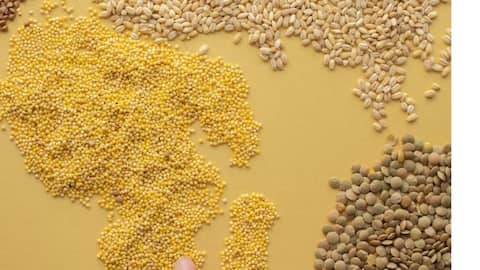World Pulses Day: Powering nutrition and sustainability
What's the story
On World Pulse Day, let's acknowledge pulses' role in global nutrition, sustainability, and food security. The United Nations General Assembly designated this day following the International Year of Pulses (IYP) in 2016 led by the Food and Agricultural Organisation (FAO), recognizing their potential to support the 2030 Agenda for Sustainable Development. World Pulse Day underscores the significance of pulses in achieving sustainable development goals.
Theme and campaign
#WorldPulsesDay campaign
The #WorldPulsesDay campaign highlights pulses as vital for both healthy soils and people under the theme "Pulses: nourishing soils and people." Soil health is essential for food production and human nutrition, preventing malnutrition and related illnesses like anaemia. By supporting soil health, pulses not only provide food but also vital minerals, emphasizing their dual role in nourishing both the land and humanity.
Significance
Drought resilient
Pulses are invaluable to farmers as they serve both marketable crops and dietary staples, offering economic and food security benefits. Their resilience to drought and minimal water requirements provide stability amidst climate-related challenges. Moreover, their nitrogen-fixing abilities enhance soil fertility, elevating farmland productivity. World Pulses Day serves as a crucial day to promote awareness and global adoption of pulses, underscoring their multifaceted significance.
Health benefits
Why pulses are important
Rich in nutrients like pottasium and protein and low in cholesterol, they are recommended by health organizations for managing conditions like diabetes and heart disease. Pulses are rich in iron, crucial for combatting widespread malnutrition. Their abundance in folate, a vital B-vitamin, supports nervous system function and helps prevent fetal defects during pregnancy. Additionally, storing pulses for extended periods can significantly enhance dietary diversity.
Environment
Low carbon footprint
Pulses play a crucial role in crop rotations, demanding fewer fertilizers compared to other crops. Synthetic fertilizers release greenhouse gasses during production and application, posing environmental risks with overuse. By minimizing this dependence, pulses contribute to sustainable agriculture and environmental preservation, ensuring a healthier ecosystem for future generations. Additionally, pulses offer a protein source with minimal carbon and water footprints.
Farmers
Economic stability
Pulses play a vital role in farmers' livelihoods, offering economic stability through sales and bolstering household food security. Their nitrogen-fixing abilities enrich soil fertility, boosting farmland productivity and sustainability. This crucial trait supports agricultural operations, ensuring consistent yields and long-term land productivity. In essence, cultivating pulses provides farmers with economic security, soil enrichment, cost reduction, sustainable practices, and resilience against environmental adversities.
